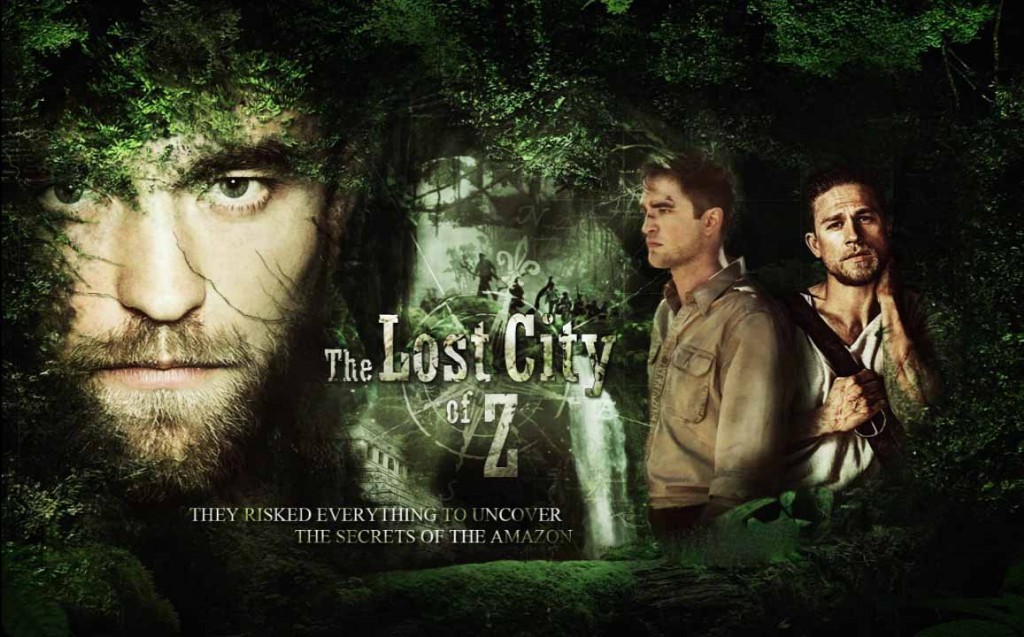Susan Granger’s review of “The Lost City of Z” (Amazon Studios/Bleecker Street)
Based on David Grann’s 2009 non-fiction best-seller, this saga chronicles the incredible adventures of a status-seeking British soldier, Col. Percy Fawcett (Charlie Hunnam), who explored the Amazon River a full century ago.
Dispatched in 1906 by the aristocratic Royal Geographical Society, Fawcett’s mission is to map the dangerous, uncharted realms of eastern Bolivia, where it borders with Brazil.
Thrashing through the South American rainforest with his Army comrades, Henry Costin (Robert Pattinson) and Arthur Manley (Edward Ashley), plus requisite guides and porters, he discovers not only the source of the Rio Verde River but also tribal pottery and carvings, indications of an ancient city and long-lost civilization hidden somewhere in the dense foliage – and he is determined to find it.
Driven by this mystical, near-maniacal obsession, Fawcett learns a great deal about anthropology and endures an excruciating second expedition in 1911, accompanied by another explorer, scornful James Murray (Angus Macfadyen), who becomes a dangerous liability.
Meanwhile, back in England, his dutiful wife Nina (Sienna Miller) and children become accustomed to his long absences. Eventually, his eldest son Jack (Tom Holland) decides to join his third expedition in the 1925; they were never seen or heard from again.
As foretold by his indigenous guide, Tadjui (Pedro Coello): “For you, there is no escape from the jungle.”
This quest concept started seven years ago with Brad Pitt. Several incarnations later, it’s chronologically adapted and referentially directed by James Gray (“The Immigrant”) with scenes subtly suggestive of Francis Ford Coppola’s “Apocalypse Now.” Yet cinematographer Darius Khondji never even comes close to John Boorman’s expansive, atmospheric imagery in “The Emerald Forest.”
Problem is: there’s little emotional involvement or critique of England’s patronizing imperialism, topics which intrigued Werner Herzog in “Aguirre, the Wrath of God” and “Fitzcarraldo.”
On the Granger Movie Gauge of 1 to 10, “The Lost City of Z” is a sprawling yet superficial 6. As Fawcett says, “A man’s reach should exceed his grasp.”

